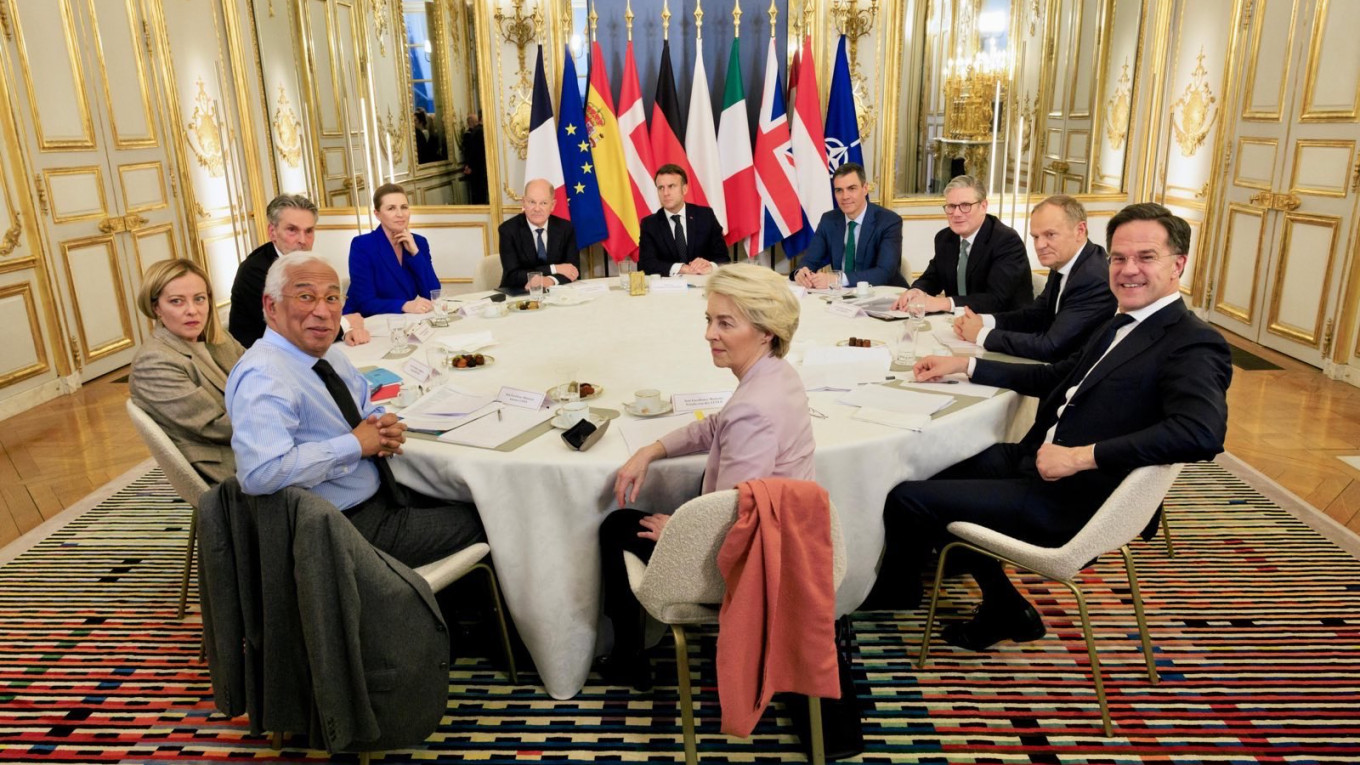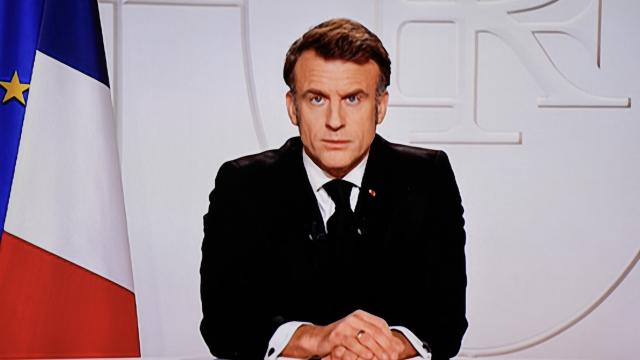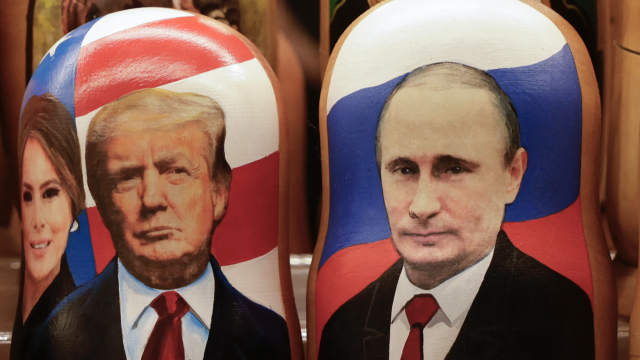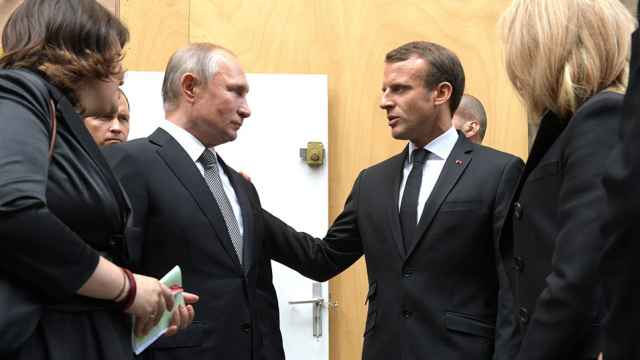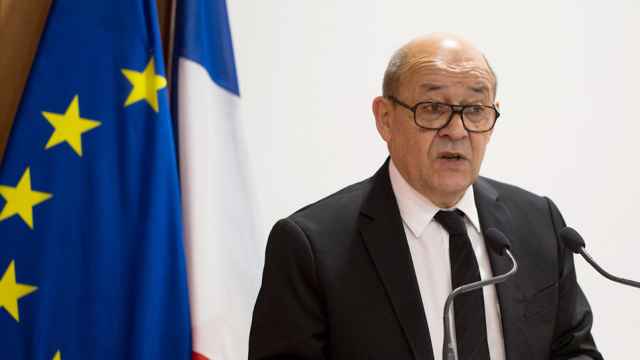European leaders Monday sought to overcome differences at emergency Paris talks on responding to a shock policy shift on the war in Ukraine by the new U.S. administration of Donald Trump, as Germany bristled at suggestions troops could be deployed.
With European policymakers still reeling from U.S. Vice President J.D. Vance's withering attack on the European Union at the annual Munich Security Forum, key leaders attended the meeting at the Elysee Palace called at the last minute by President Emmanuel Macron.
In the most concrete sign yet of the U.S. policy shift, Washington and Moscow's top diplomats on Tuesday were due to have the first such face-to-face meeting since Russia invaded Ukraine in February 2022, a clear sign that Trump wants to bring Russian President Vladimir Putin in from the cold.
Facing one of their biggest challenges in years, European leaders fear that Trump wants to make peace with Russia in talks that will not even involve Kyiv, let alone the European Union.
They now need to weigh measures including ramping up defense spending to be less dependent on the U.S., to sending troops to Ukraine as peacekeepers when a ceasefire is agreed.
Macron held telephone talks with Trump just before the summit, the French presidency said. There was no joint statement after the meeting or major announcements, which participants said needed to be left for forums like the EU or NATO.
"Everyone at this meeting is aware that transatlantic relations, the NATO alliance and our friendship with the United States have entered a new phase. We all see that," Polish Prime Minister Donald Tusk said.
EU Commission chief Ursula von der Leyen said "Ukraine deserves peace through strength" and this should be "respectful of its independence, sovereignty, territorial integrity, with strong security guarantees."
"Ready and willing," was how NATO chief Mark Rutte described Europe's position after the meeting. "The details will need to be decided but the commitment is clear."
'A little irritated'
U.K. Prime Minister Keir Starmer, aware of the importance of London showing commitment to European security after Brexit, said he was "prepared to consider committing British forces on the ground alongside others if there is a lasting peace agreement."
But he insisted Washington had to be involved, saying "there must be a U.S. backstop, because a U.S. security guarantee is the only way to effectively deter Russia from attacking Ukraine again."
But after the talks German Chancellor Olaf Scholz said that any debate now on sending peacekeepers to Ukraine was "completely premature" and "highly inappropriate" while the war is ongoing.
Scholz said he was "a little irritated" about the debate "at the wrong time and on the wrong topic."
Danish Prime Minister Mette Frederiksen said her government was "open-minded" on the issue of troops but warned a key question was if the United States was "going to back up on Europe" if troops were sent.
Russia is "threatening all Europe now," she added, warning the U.S. against attempts to agree a "fast" ceasefire that would give Russia the chance to "to mobilize again, attack Ukraine or another country in Europe."
'No division of security'
Macron has described Trump's return for a second term in the White House as an "electroshock" but also warned against any peace deal that could amount to "capitulation."
French newspaper Le Monde said the rupture between Europe and the United States was "historic," but added that Europe had to show its capacity to ensure its own defense.
"European blindness came to an abrupt end in Munich. From now on, the security of the continent depends essentially on the Europeans themselves, and on their ability to maintain their unity," it added.
The Paris talks come as Washington said that Secretary of State Marco Rubio, National Security Advisor Mike Waltz and Special Envoy Steve Witkoff on Tuesday would meet a Russian delegation including Foreign Minister Sergei Lavrov in Riyadh, ahead of a future meeting between Trump and Putin in the Saudi capital.
"There must be no division of security and responsibility between Europe and the United States," Scholz said in Paris.
"NATO is based on us always acting together and sharing the risk, thereby guaranteeing our security. This must not be called into question."
A Message from The Moscow Times:
Dear readers,
We are facing unprecedented challenges. Russia's Prosecutor General's Office has designated The Moscow Times as an "undesirable" organization, criminalizing our work and putting our staff at risk of prosecution. This follows our earlier unjust labeling as a "foreign agent."
These actions are direct attempts to silence independent journalism in Russia. The authorities claim our work "discredits the decisions of the Russian leadership." We see things differently: we strive to provide accurate, unbiased reporting on Russia.
We, the journalists of The Moscow Times, refuse to be silenced. But to continue our work, we need your help.
Your support, no matter how small, makes a world of difference. If you can, please support us monthly starting from just $2. It's quick to set up, and every contribution makes a significant impact.
By supporting The Moscow Times, you're defending open, independent journalism in the face of repression. Thank you for standing with us.
Remind me later.


